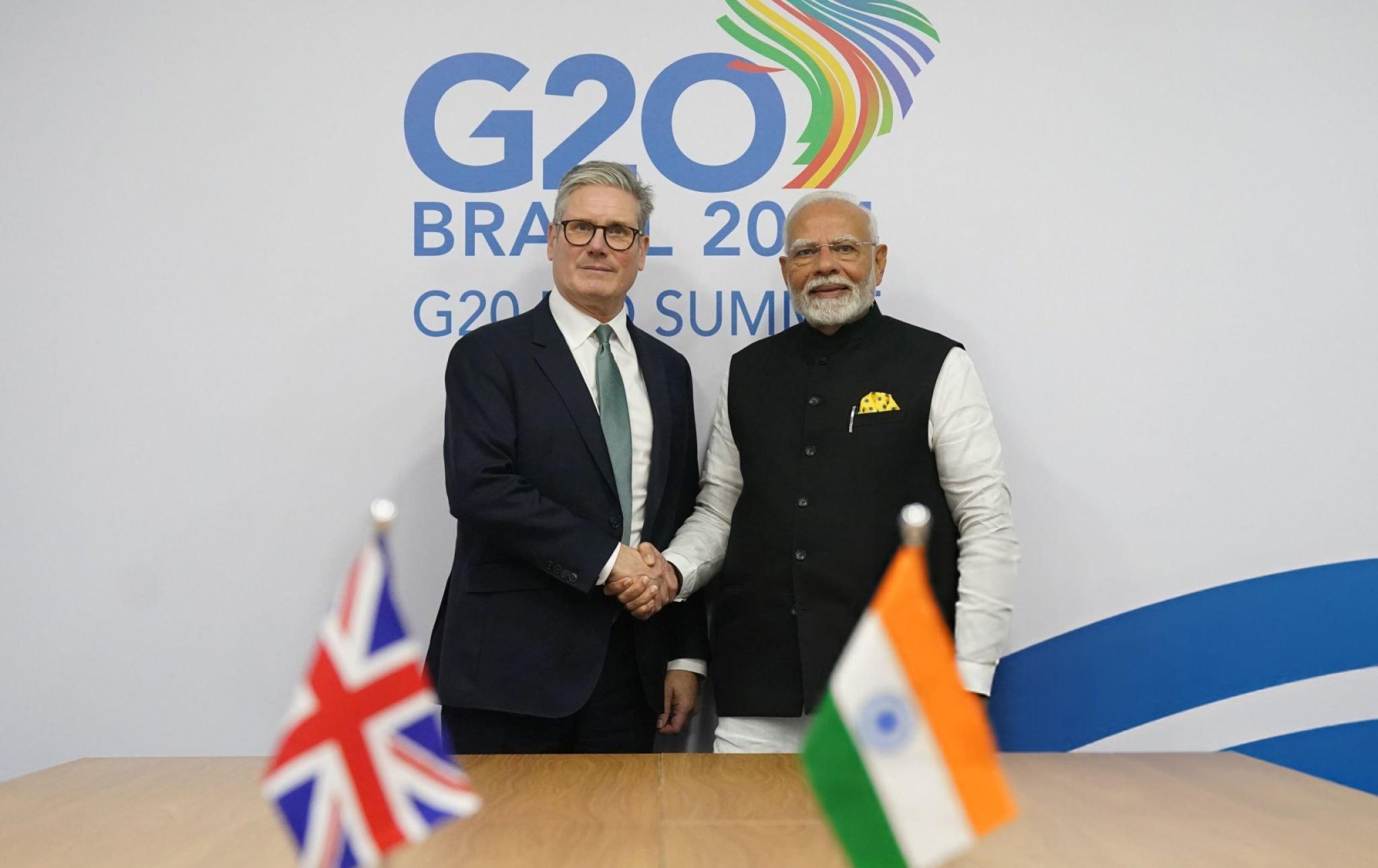Sir Keir Starmer is facing growing criticism over what has been branded a “two-tier tax system” following the announcement that Indian workers and businesses will be exempt from paying National Insurance (NI) in the UK under a new free trade agreement with India.
The exemption, a key component of the Prime Minister’s much-vaunted trade deal with Indian Prime Minister Narendra Modi, means Indian workers transferred to the UK and British employees working in India will not be required to pay NI contributions in both nations for the first three years. While this type of reciprocal agreement exists with several countries, including the US and EU member states, critics argue that implementing such a policy now, when domestic NI has just risen, sends the wrong message.
Chancellor Rachel Reeves recently increased NI contributions to help plug a £22 billion shortfall in the public finances, making the exemption particularly contentious. Delhi, meanwhile, has described the exemption as a “huge win” that will “make Indian service providers significantly more competitive in the UK.”
Business Secretary Jonathan Reynolds defended the measure, explaining that it will only apply to a limited group of workers — specifically those involved in inter-company transfers — and not to all Indian nationals working in Britain. He added that British workers heading to India would benefit similarly by continuing to contribute solely to the UK system.
However, political opponents and trade experts were quick to accuse Starmer of prioritising foreign business interests over British workers. Tory leader Kemi Badenoch, who served as Business and Trade Secretary during the earlier phases of negotiations, claimed she had refused to sign the deal over concerns about tax imbalances, excessive visa demands, and the impact on UK industries like ceramics and aluminium.
“This is two-tier taxes from two-tier Keir,” she said. “When Labour negotiates, Britain loses.”
Shadow Justice Secretary Robert Jenrick echoed those concerns, stating: “British workers come last in Starmer’s Britain. This deal means Indian workers here for less than three years will not pay National Insurance, while our own citizens face increased tax burdens.”
Reform UK leader Nigel Farage went further, calling the agreement “truly appalling” and a “betrayal of working Britain.” He added: “This Government doesn’t give a damn about working people. Labour has, once again, sold them out.”
Dame Harriett Baldwin, Shadow Business Minister, criticised the arrangement in Parliament on Tuesday, warning that it risked “subsidising Indian labour while undercutting British workers.” She called on ministers to publish a full impact assessment.
In response, Rain Newton-Smith, chief executive of the Confederation of British Industry (CBI), welcomed the trade deal as a “beacon of hope” amid rising global protectionism. “The Government is right to build stronger trade links with fast-growing economies,” she said, praising the potential benefits for British exporters.
The broader trade agreement — finalised after over a dozen rounds of talks since 2022 — promises significant economic gains. The Government estimates the deal will add £4.8 billion to GDP annually by 2040, £2.2 billion to wages, and boost bilateral trade by over £25 billion per year.
Tariffs on 90% of current exports to India will be reduced, with 85% of those becoming fully tariff-free within a decade. Whisky and gin duties, currently at 150%, will fall to 75%, then to 40% over 10 years. Automotive tariffs will drop from more than 100% to just 10%. India has also agreed to reduce levies on medical devices, machinery, and lamb.
British consumers could benefit too, with cheaper imports of Indian textiles, food products, and footwear on the cards. A cap has also been agreed on the number of Indian professionals — such as chefs, musicians, and yoga instructors — eligible for fast-tracked UK visas.
Starmer defended the agreement, calling it a “landmark deal” that marks a “new era for the UK economy.”
“This deal will create jobs, boost growth, and help put more money in working people’s pockets,” he said.
Indian Prime Minister Modi hailed it as a “historic milestone” and said he looked forward to welcoming Starmer to India soon.
The full agreement is expected to come into force within a year.






